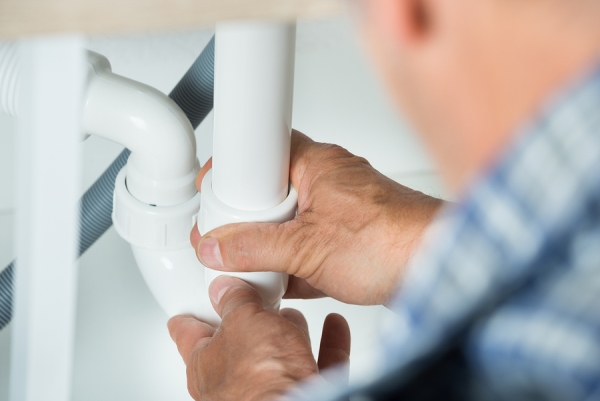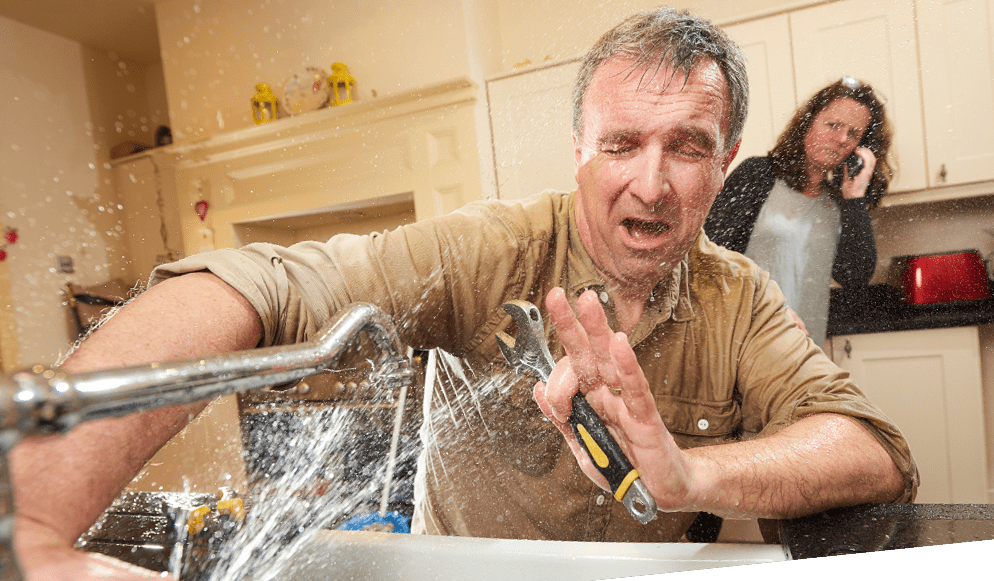Quick Plumbing Tips for Urgent Issues Until Support Arrives
Quick Plumbing Tips for Urgent Issues Until Support Arrives
Blog Article
The article author is making a number of good pointers relating to What to Do During a Plumbing Emergency overall in this great article in the next paragraphs.

Pipes emergencies can strike at any moment, creating stress and anxiety and possible damage to your home. Whether it's a burst pipe, a clogged up drain, or a dripping faucet, understanding just how to handle the circumstance until an expert plumber shows up can conserve you from further difficulties. This short article supplies essential emergency situation pipes suggestions to assist you mitigate damage and reclaim control during a plumbing dilemma.
Switch off the Supply Of Water
The first step in any pipes emergency situation is to shut off the supply of water. For local concerns, such as a leaking faucet or commode, turn off the valve near the fixture. In the case of a significant leak or burst pipeline, locate your home's major water shut-off valve and turn it off quickly. Knowing the place of these shutoffs in advance can conserve valuable time during an emergency situation.
Address Small Leakages with Short-lived Fixes
Little leakages can quickly end up being substantial problems if left unattended. Make use of these temporary repairs till specialist help shows up:
While these fixes aren't permanent, they can assist decrease water loss and damage.
Unclog Drains Pipes Securely
A blocked drain can be a discouraging and unpleasant issue. Right here's just how to tackle it:
If these techniques do not work, prevent making use of excessive force, as it might intensify the clog.
Manage Overflowing Toilets
An overflowing bathroom can create prompt disorder. Here's what you should do:
Shut down Your Hot Water Heater
In particular emergency situations, such as a ruptured pipe, it's a good idea to shut off your hot water heater. This protects against getting too hot or damages to the system when water stops flowing. Switch off the power supply to the hot water heater (electrical or gas) and let it cool to stay clear of possible threats.
Momentarily Quit a Ruptured Pipeline
A ruptured pipeline can cause substantial water damages in mins. To alleviate the problem:
Call a specialist plumber immediately to attend to the issue permanently.
Handle Frozen Pipes Meticulously
In cooler climates, frozen pipelines are an usual emergency. If you think an icy pipeline:
Prevent More Damage
Taking fast action to decrease damage can save you money and time in the long run. Below's exactly how:
. Have an Emergency Pipes Set
Prepare a standard plumbing emergency situation kit to manage minor problems effectively. Your kit must include:
Having these tools handy can make a significant difference in your capability to take care of emergencies.
Know When to Call a Specialist.
While quick fixes can help briefly, particular pipes issues need prompt professional interest. Call a plumber if:.
Promptly contacting an expert makes sure the problem is settled appropriately and protects against further problems.
Final thought.
Plumbing emergencies can be overwhelming, however with the ideal expertise and devices, you can take care of the situation effectively until help shows up. By shutting off the supply of water, dealing with little leaks, and using short-term fixes, you can reduce damage and keep your home safe. Remember, these suggestions are short-term services; always consult a licensed plumber to take care of the origin of the trouble. Prep work and quick thinking are your finest allies in any plumbing emergency.
8 Helpful Tips for Managing Plumbing Emergencies at Home
If your plumbing system hasn’t failed once, wait for it because almost everyone has a story to tell. Sometimes, it could be simple emergencies such as a leaking pipe, a blocked cistern, or even a big burst pipe. In situations like this, you need to have some handy tips to save you some money and from possible damages.
Take care of minor issues early.
Sometimes, you could have avoided an emergency by taking proactive measures while it was still early. Some major plumbing emergencies can be a result of an ignored minor issue. We recommend that you have items like plumbing tapes and other related items. A plumbing tape can allow you to manage minor leaks before the plumber arrives.
Cut off the water supply.
This tip is essential in almost any type of leakage problem. For problems like minor leakages in the toilet or kitchen, turn off the supply that takes water to the affected pipes. If the leakage is a major pipe, you must shut off the supply valve to the entire building. This will help you avoid flooding your home and neighbors if you share a flat.
Know your plumbing system
Folks typically move into a new apartment without understanding the water supply around the building. This can prove disastrous if a water emergency arises and the plumber is far away. The previous tip will prove useless if you don’t practice this one. More importantly, know where your water shut-off valve is located – you’ll need that knowledge to prevent potential home floods.
Have some common handy tools
There are lots of plumbing emergencies that you can handle without hiring a plumber. That’s why you must keep some tools available always. Some tools that you can use to fix simple plumbing emergencies easily include plumbing tapes, screwdrivers, thread seal tapes, plungers, pliers, tape measures, and rubber gloves.
Insulate your pipes from cold
You’ll save yourself from many plumbing expenses if you protect your water pipes from the cold. This is because of the harmful effects that cold weather can have on your pipes. During winter, your pipes can burst from being overly expected to freezing temperatures. So, make sure insulators are there to keep the pipes working correctly.
Avoid practices that will clog your toilet.
Many people indulge in practices that can damage the plumbing system of the entire building. One of these is when they use their toilet to dispose-off garbage. They flush all kinds of things, such as paper towels, bandages, hairs, female sanitary products, etc., down the toilet. This will block your toilet in the long run, incurring unnecessary expenditures. Dump such waste in the trash instead.
Check your dials regularly.
Sometimes, there could be leakages in your home without noticing them in time. So, constantly monitor your water meter dial. If the dial is reading when there is nobody using water, this is an indicator that there is leaking. Check for leaks immediately. Call a plumber as soon as possible if you can’t find any.
https://www.constructionplacements.com/8-helpful-tips-for-managing-plumbing-emergencies-at-home/

As a fervent reader on , I imagined sharing that piece of content was a good idea. In case you enjoyed our page if you please do not forget to share it. We cherish your readership.
Schedule Service Now Report this page